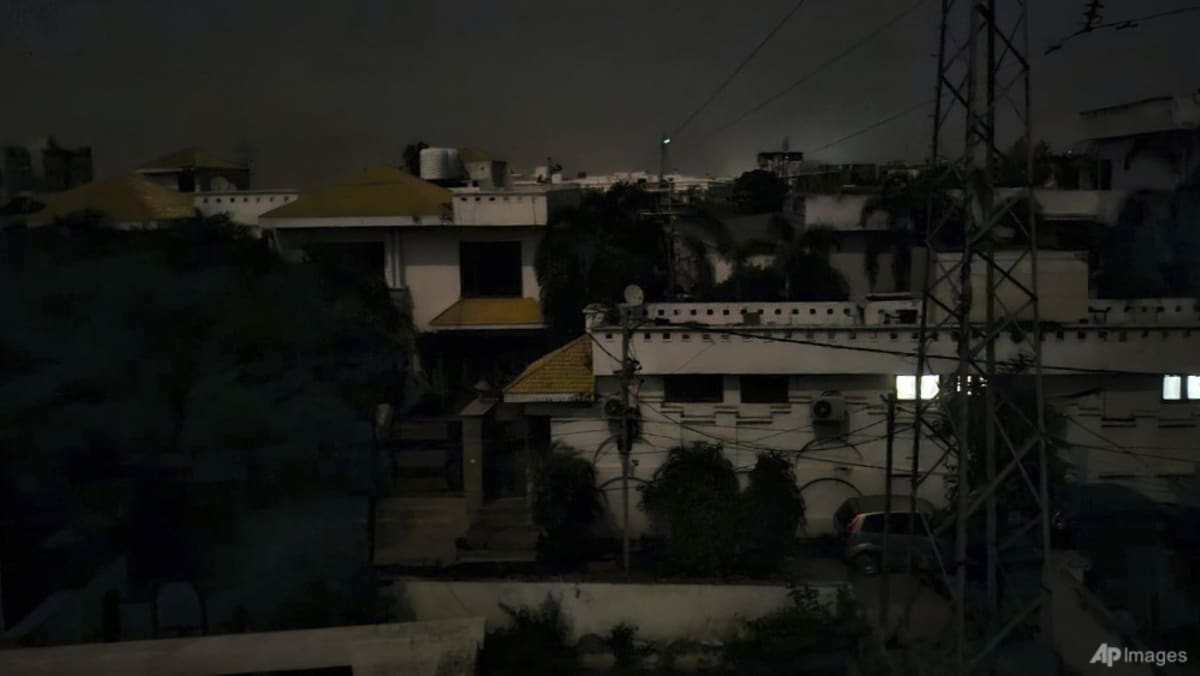Tensions Escalate: Drone and Missile Attacks Rock Jammu Amid Ongoing India-Pakistan Clashes

JAMMU, India: A wave of chaos engulfed the Indian city of Jammu late on Thursday, May 8, as explosions reverberated through the night. This alarming incident stemmed from an alleged drone and missile attack purportedly launched by Pakistan, targeting military stations situated around the contentious Kashmir region. This violent escalation marks the second day of intense clashes between the nuclear-capable neighboring countries, reflecting a dangerous deterioration in their long-standing rivalry.
Eyewitness accounts from a Reuters journalist indicated that sirens blared through the urban landscape, accompanied by striking red flashes and projectiles igniting the night sky. Over a span of approximately two and a half hours, these dramatic scenes unfolded, suggesting a significant intensification in hostilities that characterize the worst confrontation between India and Pakistan in more than twenty years.
As the conflict unfolded, casualties mounted with reports indicating that nearly four dozen individuals had lost their lives over the course of two days. In a stark report from India's Ministry of Defence, it was confirmed that military stations located in Jammu, Pathankot, and Udhampur were specifically targeted by drones and missiles of Pakistani origin, emphasizing the precariousness of the situation along the international border in Jammu and Kashmir.
In a bid to assuage public fear, the Ministry reassured citizens via social media platform X, stating, “The threats were swiftly neutralised. No casualties or material losses were reported.” However, the sense of urgency was palpable, as Indian television channels highlighted similar flares and bursts observed over Jaisalmer city in Rajasthan, which shares a border with Pakistan’s southern province of Sindh.
In a quick rebuttal, Islamabad firmly denied any involvement in attacks on Pathankot, Srinagar, or Jaisalmer, describing the accusations as “entirely unfounded, politically motivated, and part of a reckless propaganda campaign aimed at maligning Pakistan.” This statement was issued by Pakistan's Ministry of Foreign Affairs, which underscored its commitment to responding decisively to any perceived escalation, asserting the importance of safeguarding Pakistan’s sovereignty and territorial integrity.
As the night progressed, residents of Jammu were slowly regaining electricity after a temporary blackout occurred during the attack, a Reuters journalist reported. According to a military source who chose to remain anonymous, eight missiles launched from Pakistan targeted various towns within the Jammu region, including Satwari, Samba, Ranbir Singh Pura, and Arnia. Fortunately, these missiles were intercepted by the air defense units stationed in the area. This layer of defense indicates a broader military readiness amid rising tensions.
Adding fuel to the fire, Pakistan’s Defence Minister Khawaja Muhammad Asif indicated that further retaliation is “increasingly certain,” as both nations continued to hurl accusations at each other regarding drone strikes. The cycle of blame only exacerbates the hostility, leaving the international community concerned about the potential for further escalations in violence.


























